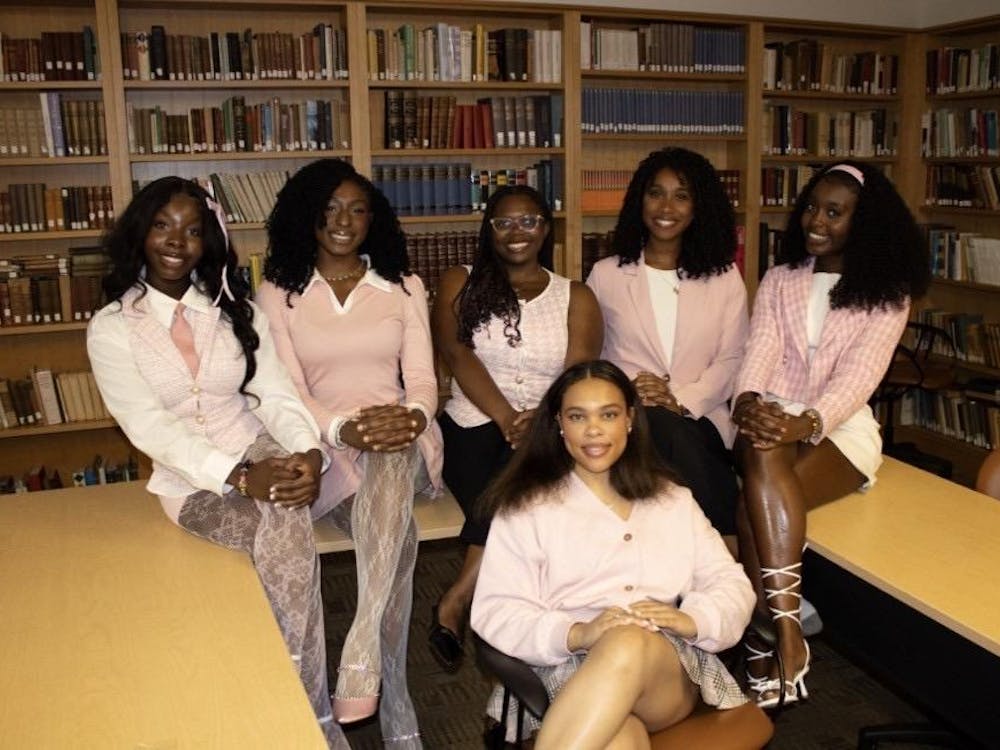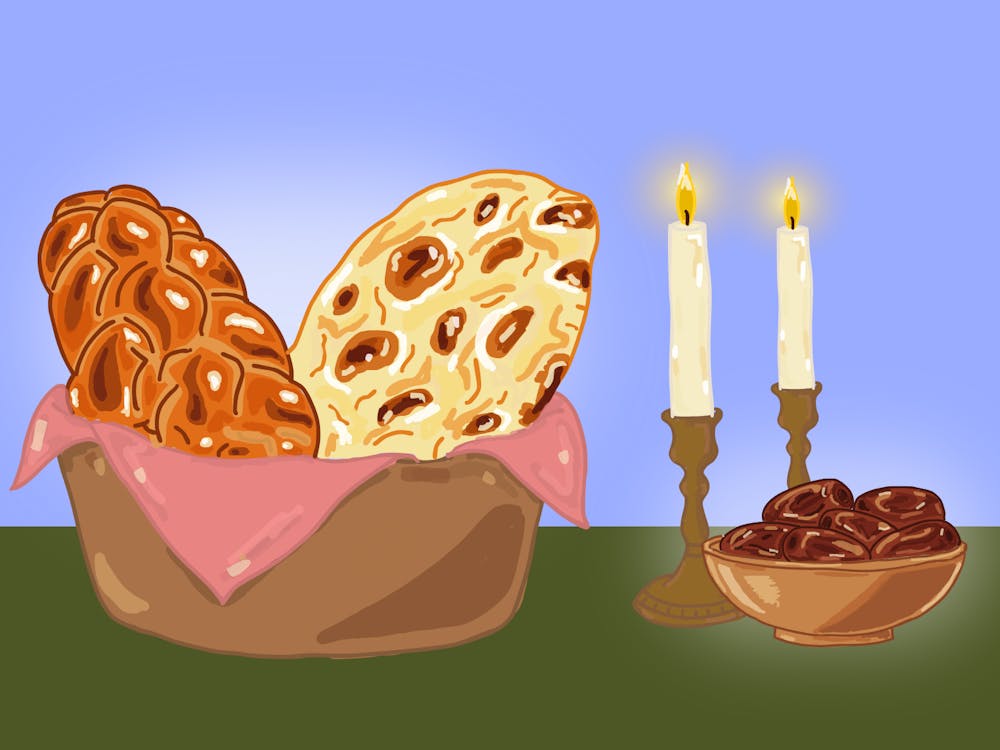The bomb exploded Thursday in Kabul, Marina Omar's home city.
She found out in her 8 a.m. English class at Piedmont Virginia Community College, leaving her a day full of hours to worry about her family in Afghanistan, particularly a beloved uncle and two rosy-cheeked cousins.
Omar didn't have time to eat that day, let alone try to call home. After class it was off to work at the president's office. Then she rushed home to change clothes and catch a few minutes of a BBC radio report. She was used to hearing about rockets going off in her city, not planted bombs.
No time. She darted out the door to her job at Krispy Kreme.
Marina didn't get back to her apartment until 11 p.m. Her calling card
- one of the few that connects with Afghanistan, a rare find in Charlottesville -- wasn't working.
So she waited for her brother, Farhad, to come home so she could use his. By 1 a.m. he hadn't, and, exhausted, Omar went to bed -- but not to sleep.
Because sleep doesn't come easily when it's accompanied by a needling anxiety. Not even to a 22-year-old who works two jobs, takes three classes and maintains a 4.0 GPA. Not even to a 22-year-old who doesn't have time to eat.
Finally on Friday morning, over 24-hours from when she first heard about the bomb, Marina got in touch with her uncle. He was at work. Everyone was fine.
When Marina, her brother and her mother -
all political refugees -
came to the U.S. last summer they thought they'd never be able to return because of the Taliban regime. In this way Sept. 11 has brought a barbed paradox to Marina's life. The various bombings in her country
- American and otherwise -- fill her with dread, even panic.
But there is also the hope now, that with the Taliban gone, she can one day return home.
Growing up a world away
In the Omar family's apartment behind Fashion Square Mall, several items hark back to the world in which Marina and her brother grew up.
An Afghanistan-shaped clock hanging above a blue couch is the most innocuous. Adorning the dining room, a poster of the anti-Taliban militia leader Ahmed Shah Massoud, killed Sept. 9, 2001. In the living room, a portrait of their father, killed in the resistance movement against the Soviet Union. Marina was two at the time. Farhad was three.
All around them they have seen death and dying, first under the Red Army, then the Taliban.
Before the Taliban took over her country, Marina was on the fast track to college.
She advanced a year ahead of her older brother in school. She graduated from high school at 16, and was the first in line of her five cousins to attend university.
But when the Taliban came to power, the girl who loved school couldn't go anymore.
"I don't know how to explain those years," she said. "But it's like dying
it's like being in prison."
Those were the years Marina spent inside. She couldn't stand the thought of going out, the possibility of being beaten on the street. A hopeless depression grew within her as the Taliban remained in control year after year.
She talks about the lost time by shaking her head, rolling her eyes and pursing her lips into a sardonic smile.
When Marina did leave the house, it was to go to work at the non-governmental organization where her mom was the deputy director. There, Marina was a secretary, interpreter and translator, often working with journalists from the BBC.
For women confined to the home, the organization provided financial assistance through jobs such as carpet making. It also provided tutoring for over 3,000 girls.
The Taliban didn't know about these activities at first. But eventually they shut the organization down.
Marina remembers the day the Taliban raided the office. Forty men with guns against nine unarmed women. All the women left except for one.
"Ask me whatever questions you want to here," Marina told them. "I'm not going to your jail."
Finally, she relented. She didn't want them to touch her if they were going to carry her out.
After two days in jail, the Taliban, under pressure from the UN, released the women. They left with this warning: if you go back to work, you will be killed.
Within a week Marina and her mom moved to Peshawar, Pakistan, where Farhad joined them.
A year later, the family gained asylum in the U.S. When they said goodbye to Uncle Farid at the airport, they didn't think they'd ever return.
Coming to America
The Omar family arrived in Charlottesville in the middle of an August night. They had flown from Pakistan to New York to Dulles Airport to Albemarle County. Marina cried during much of the trip.
A caseworker from the International Rescue Committee -- an agency that helps political refugees settle in the U.S. -- met them at the airport and delivered them to their non-air conditioned apartment on Cressup Road.
They couldn't tell where they were going, Farhad remembered.
All she wanted was sleep, Marina recalled.
When they woke up in the morning they had one fan to cool the apartment and an ambiguous future to figure out.
For Farhad, language presented a huge barrier. Once he missed his bus stop and, unsure of what to say, walked home from Barracks Road Shopping Center. Another time he went to the Media Center in Clemons and asked for a movie recommendation, any movie.
He wound up with Junior, starring a pregnant Arnold Schwarzenegger, he laughs.
Farhad, who now works as a computer technician at Jordan Hall, first got a job at Krispy Kreme, then switched to 7-11.
Marina "was one of those people who used to fill out applications everywhere," she said. She ended up getting a job at Krispy Kreme in November or December. She also became an interpreter and a translator for the IRC.
On a morning a little over a month after their arrival, Marina and Farhad were doing the things you do to get settled in America. Farhad was shopping at K-Mart. Marina was taking her learner's permit test at the DMV.
It was Sept. 11. The day things changed.
"It was unimaginable," Marina said. "How could they do it -- three planes at the same time?"
The terrorist attacks, and the military action that followed in her homeland, riddled that fall with angst for Marina.
The bombings in Afghanistan frightened her -- she wanted to go back. If something happened to her family, she wanted to be there.
In desperation, she emailed the BBC, asking them to send her over. She never heard back.
Marina did, however, hear from "60 Minutes." She appeared on the show last winter with four other Afghan women living in the U.S. But she didn't like the direction the show took.
"They were trying to make us say, 'we are here to put nail polish on,'" she said. "I didn't really want that to be a generalization."
Marina remains passionate about wanting to return to Afghanistan and work with women on issues of sexism, education and depression. Now in their third semesters at PVCC, both Marina and her brother are applying to the University this fall.
"I'm not here just to have fun," Marina said. "I'm here to go to school and go back and do something there."
All that can't be left behind
On the morning after the bombing in Kabul, Marina sits in her living room on the blue couch, beneath a blue-curtained window that looks out onto a blue sky.
In July, her family moved into a new apartment with air conditioning.
It's Friday, close to 11 a.m. and the mid-morning light casts the room in pale gray shadow. Marina barely dents the thick cushion beneath her. She doubles her back over so that her wavy dark hair grazes her knees and thighs, so that her thin torso is hidden in the angular folds of her body. As if she is protecting her ribs. Maybe her heart.
She found out her uncle was OK an hour and a half earlier. But her anxiety hasn't quite dissipated. It doesn't have anywhere to go.
"It's like I'm fine, I'm safe in here," she says of being in the U.S. "But what if my friends aren't safe, my family isn't safe?"
This is a question with no definite answer, which is why Marina always thinks about it, and why she always tries not to.
No matter how many hours she packs with work and class and study, worries and homesickness steal away their share of minutes. Sometimes Krispy Kreme customers have to repeat their orders to her because she's daydreaming of home. Some nights she has to combine a Tylenol PM with a smelling ointment to force herself to sleep.
Very little makes Marina smile when she talks, but when she brings out pictures of her cousins -- Yalda, 5, and Elaha, 4 -- her face brightens. In one of the photographs they are having a birthday party. In another they are sprawled on the floor with papers and notebooks. This year they started school.
Her countenance changes when she brings out another picture, one she drew for her final art project last spring. Free-floating charcoal and pencil sketches span the paper canvas. A window with bars. Her mother's face. Her father's faint silhouette. A clenched fist. An open hand reaching for unseen help.
Marina says the drawings represent parts of her parents' lives in Afghanistan. The muted colors seem to embody her life here. She doesn't go out often or have many friends. She doesn't really chat with her co-workers. They understand, she says.
"I feel myself there," Marina says, thinking of her homeland. "I don't really feel my existence here."
So one day she'll go back. Because, now, that day exists.






